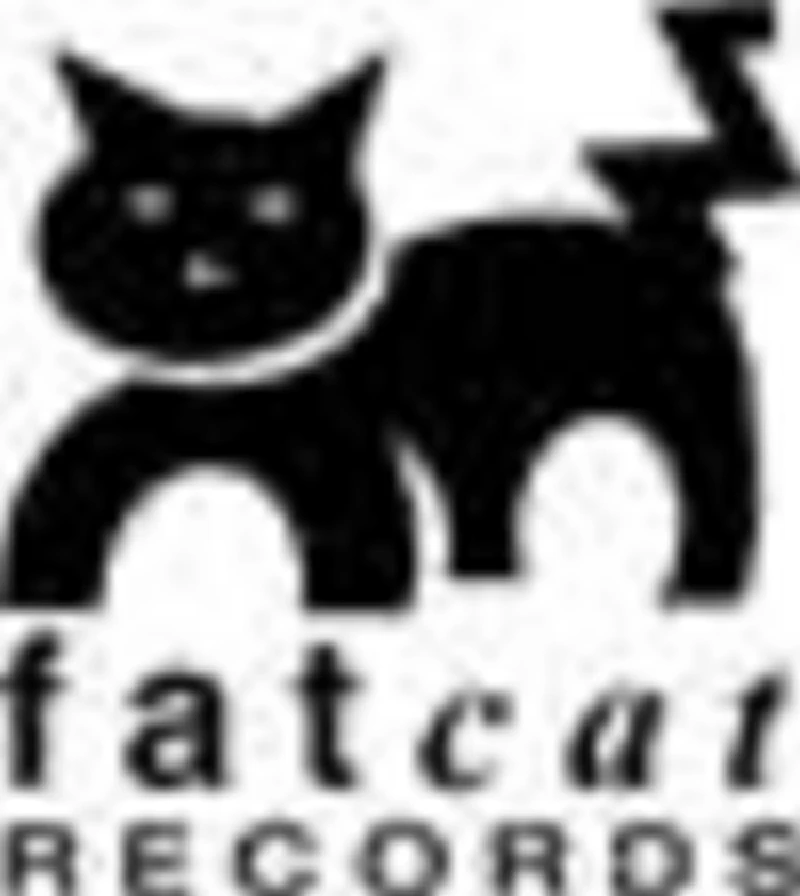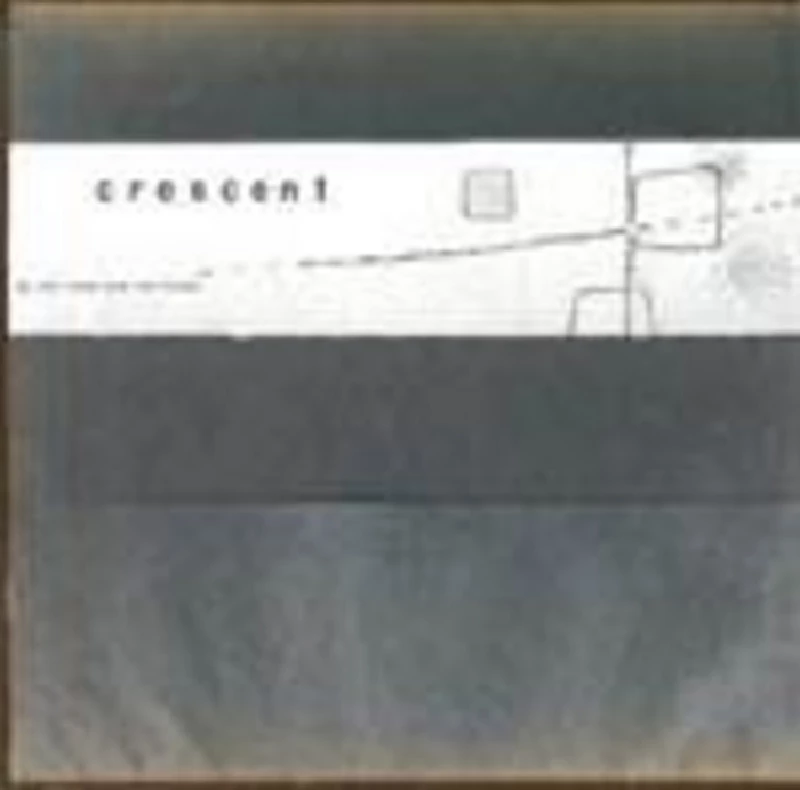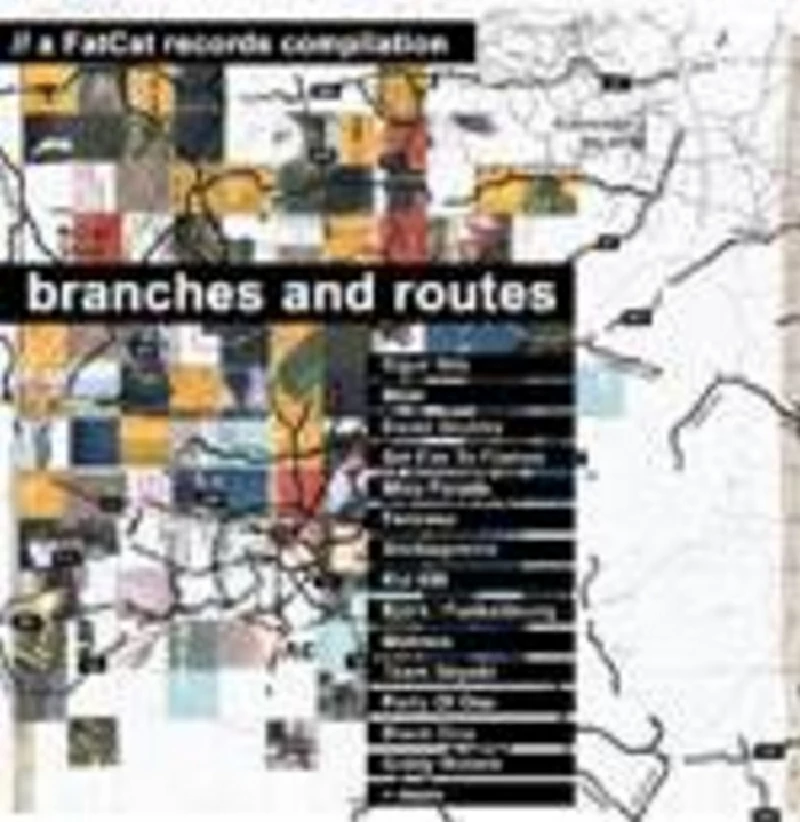Miscellaneous - Interview with Dave Cawley
by John Clarkson
published: 16 / 7 / 2003

intro
One of Britain's biggest indie labels, Fat Cat is perhaps best known for being Sigur Ros' label, but, from its very outset , has always proved remarkably eclectic and broad in its tastes. Co-owner Dave Cawley mulls over its history with John Clarkson
Currently based in Brighton, Fat Cat has become over the last few years one of Britain’s largest independent labels, and is best known for having on its books the bestselling Icelandic post-rock group, Sigur Ros. Always leftfield in tone, it has from its very outset been eclectic and broad in its tastes, and, as well as post-rock, has also explored other genres such as hip hop, drum ‘n’ bass, dub and post-industrial. Fat Cat initially opened as an electronica and techno-based record shop in the London commuter town of Crawley in 1990. By 1991 it had moved into the capital, where, operating as a meeting place and nerve centre for the rapidly-expanding electronic and experimental scene, its regular customers incuded Bjork, the Aphex Twin and Black Dog. In 1996 it put out its first release, ‘EVA ‘, a12” EP by a Japanese techno producer, Web. When the record shop closed down in 1997 because of an excessive rent increase, Fat Cat’s co-owners, Dave Cawley and Alex Wright continued to run the record label, taking financial support, for the first year after the shop’s closure, from One Little Indian, another long-serving and well-established independent label which includes on its roster Bjork. While Fat Cat at first specialised in releasing 12” singles, it began in 1999 to release CDs and albums. Since signing Sigur Ros in 1998 and then Mum, another popular Icelandic post-rock in 2001, Fat Cat has become a major international force, but has never lost its sense of ethics or indie idealism, continuing to release frequently challenging and uncommercial records by often obscure artists, and taking the step of publishing on its web pages a resources and information DIY help guide for musicians. Dave Cawley took time out from his busy schedule to talk to Pennyblackmusic both about how his label has managed to balance and maintain its ideals against the practicalities and restraints of time and economics, and also about its decade-long history. PB : Fat Cat started out as an electronica-based record shop in Crawley in Sussex. That was with your partner, Alex Wright. DC : That’s right, and another bloke called Andy Martin. There were three of us who started the record shop in the beginning. PB : What kind of musical backgrounds did you come from before you started selling records ? DC : I used to put on sound systems for the rave scene when it first started over here. I got into doing that shortly after I left school , and I met Alex through a mutual friend because of that in around about 1987 or 1988. Alex wanted to put on some of his own parties and , because of our shared love of music, we struck up a really good friendship and relationship. We hung out together for a couple of years, and did various parties together up and down the country. Then Alex got made redundant from his job -he was working at an airport as a civil engineer- and he asked me if I wanted to open a record shop with him .We managed to scrape together a couple of thousand pounds, and opened a little shop in Crawley. We were lucky to base it in Crawley. One of the DJs from around there is a guy called Lee Perkins who goes under the name of D Sync, and another is a guy called Luke Slater, who I used to go to school with and who is still doing stuff now. I used to go to school with him. There was another guy as well called Matt Coghill who did stuff as well as Le Numero Politique. Crawley literally had its own Detroit sound. In 1986 Lee and Matt and some other people went to Detroit and hung out with the DJs there. They were the first people from the UK to do that, so by the time I started hanging out with them this whole Chicago/Detroit sound was fully engrained in Crawley. If you went to any party they would play there this really beautiful electronic/club music. It didn’t really matter what Italian house fashion was coming in elsewhere, and how many people were waving their hands to these really dodgy sped up pianos from Ibiza. They were really hard core in Crawley about what they listened to as they had been brought up by these DJs to be so. That was really where we started from. We started selling the stuff we had begun to listen to after hanging out and socialising with these people, all of whom had impeccable music tastes. PB : So basically you were in the right place at the right time ? DC : Yeah ! Without a doubt. PB : In 1991 you shifted the shop to London and then in 1996 started the Fat Cat record label. Did you have a long term game plan from the beginning with the record label , or was it only when the shop was forced to close in 1997 that you decided to make it a bigger thing ? DC : We had always wanted to have a record label, but for the first few years with the shop we were just finding our feet. Moving up from Crawley to London was a big risk as we went up there as tiny fish in a huge pond. There were all these other import shops there, and we we were really worried about how it was going to work out , especially as we were selling stuff which no one else up there at this time was even playing. Noone wanted to play an Aphex Twin record then. Noone wanted to be play a V12 record. They weren’t interested in Carl Craig or any of the other stuff we were selling, but we went up there, all ready with these records, and fortunately it kicked off. For those first few years we just concentrated on what we had to sell. We also started to broaden our horizons. We began to get into other sorts of music than electronica and to experiment, selling old funk records, and that sort of thing. We began to have a very wide selection of different genres in our racks. While techno remained the main stay of what we were doing, there was on the peripheries all this other sort of music we were dealing with, and so we decided at that stage that, right,this was going to be a good time to start a label and finally put out our first release six or seven months before the shop shut. The shop shutting took us totally by surprise. There was a rent increase within the area, which we didn’t expect . A greedy landlord put us out of business basically. We already had an idea musically of where we were going with the label anyway, and what we wanted to do, which was to be as experimental and eclectic as possible. I think that process sped up dramatically though when we didn’t have the shop anymore. We got into releasing both guitar based music, and much more marginal music much more quickly. I think if we had still had the shop we would have taken things a lot slower. We put out two or three electronica based records, and then we were quickly off into releasing records with different styles and different sounds.. PB : Why did you decide not to reopen the shop in another part of London ? DC : We had ten members of staff, and did look into that. We could have carried on if we had really wanted to, but it would have meant that we would have gone back five spaces, which none of us were keen to do. We didn’t want to go backwards and end up in a smaller shop with three members of staff. Our morale would have been terrible, so we decided to call it a day and move on to other areas. Fortunately we were given an amazing offer from the people at One Little Indian, who offered us space in their olffices and finance to go and develop the record label. PB : How did you first become involved with them ? DC : It was through Bjork. She was always a really good supporter of the shop. She came to visit us in the very early days of the shop opening in London. She hadn’t really got into electronica at that stage , but she came down, and I think things just clicked in her head. “Oh my God ! I There’s so much stuff in here that I really, really like.” We have always had a good relationship with her. Through the shop she was able to hook up with lots of like-minded people and then, when we didn’t have the shop any more, she was really open about wanting us to carry on with what we were doing. I have great respect for her , and also for Derek Birkett who owns the label for giving us the opportunity to carry on. PB : None of you had run a record label before. Did you rely a lot on trial and error a lot in those early years ? DC : Definitely ! We made loads of mistakes. The whole process of making computer programmes, of finding out how to lay out designs and to do adverts, how to put records together and how to cut them, and going to meet people at the Exchange, it’s all a huge, huge learning curve. You’ve just got to go out and get stuck into it. There is no other way. PB : You left the umbrella of One Little Indian after a year. Why did you do that ? DC : The sad situation was that we weren’t the only label that Derek took on. He took on six other labels at the time, and ran into cash flow problems. Rather than going you stay, you go, he decided to drop us all, but in a really nice, respectful, professional manner. He told us a good time before it was going to happen. Everything we had pressed up and ready to go he gave us for nothing. He let us take our entire back catalogue with us. That doesn’t usually happen. People don’t act like that in this industry any more. Derek’s one of a dying breed. He knows what it is like to start a label and to struggle though , and has also seen in good times and bad times. He couldn’t have done things in a better way. PB : Where did you go after that? DC : We moved into a new office in Old Street in London. Of course, we no longer had a wage coming in, so Alex went back to DJing and I became involved in helping to set up a new, small record shop called Small Fish at its early stages. We had another partner by that stage, Dave Howell, and he went and worked during that period for PIAS. We all had some part time cash coming in, and so we carried on putting out records, and looking for bands and signing them up. We kept trying to improve what we were doing, to improve our distribution and our promotion,and trying to widen the network of contacts that we already had. PB : For the first few years you concentrated on releasing 12” singles. When did you first start releasing CD albums ? DC : It was in 1999. The first CD we did was a compilation, ‘Across Uneven Train’. After releasing ten 12’’s, we decided to put out a compilation as a kind of introduction to what we were trying to do. It had on it Bjork, Funk Store, Modern Air and Mice Parade, all of whom appeared on the early 12”s, and also Autchre and a whole variety of other artists. It featured some of the more electronic side of things which we had been doing as well. It was an early showcase of our sound. PB : Sigur Ros joined the label just before that in 1998. Is it true that you stumbled across them while DJing in Iceland ? DC : Yeah, that’s true. We have always had good contacts over there through Bjork. The One Little Indian office was also always brirmming with Icelandic people at various levels, and Derek has got a house out there as well. It was a country I first visited whilst we still had the record shop. I was lucky enough to get invited out there to DJ in some bars and other places. It’s a very, very small place, and it didn’t take long to meet everyone. We were invited back to go and play the first Airway Festival at which Gus Gus were playing, and also another of the bands we had done one of the 12”s with, a group called Grind Work, which featured Siggi and Einar from the Sugarcubes. Grind Work were playing second, and Sigur Ros were on first, and we were totally amazed by them. We ended up speaking to them, and Alex went to listen to their work in process which was their album ‘Agaetis Byrjun’’. The conversation just went from there really. It started very, very small. It was all very gentle. It was the normal way Fat Cat starts.We told them that we would love to do a 12” with them and they were really keen to do so. We got a really early copy of the album after they finished it as well , and we sat and listened to it,and began a conversation with their record label out there about releasing it over here. At that point the industry started to move in. We put the Fat Cat 12” out (‘Sven-G-Englar’-Ed). It made NME Single of the Week and then the major record labels pushed in. I had never experienced anything like that, and I wouldn’t want to experience anything like that again really. It was very, very unpleasant. They ring you up and come on the phone and it’s like “Oh hi, we’re going to sign up Sigur Ros in Iceland. Can you give me a number for so-and-so ? ” and you’re like “What ? Hang on ! I was just speaking to them earlier” They are literally as brash and as upfront as that, with who they think they are and how they feel they can treat people. “We’ve got a cheque book, so who are you ?” We, therefore. had to sign Sigur Ros quickly. It was blatantly obvious that we had to get them out on the road. It was something which hadn’t really done before as we hadn’t ever had any extra finances to do that sort of thing. While we continued to release their records, Alex and I went out and spoke to a lot of labels about signing a deal which would enable the finances first and foremost to go into Sigur Ros, but also to see if we could get some extra money to go into the rest of the label and to develop the other artists on the roster ,many of whom who we thought were equally good. After a year of going round, we finally signed a deal with PIAS which allowed us to have some extra finance as a distribution company, and which also gave us the money to be able to sign Sigur Ros to a long-term deal which is where we are at the moment. PB : One of the things that you have said recently about Fat Cat is that running it is now “a balancing act between idealism and the harsh realities of time and economics.” DC : That’s completely true. If a band starts to sell more records, then everything connected with them begins to escalate. The amount of people around the band with their own agenda, the amount of people trying to take money from you goes up. Your problems triple basically, and as your problems triple, your financial problems also triple and go up. Fat Cat has been good to us. Alex and I employ six people now. While we are not sitting in Mercs or anything like that, we can now pay ourselves a wage. We don’t have to worry about part time jobs any more , and can pay the rent, get to do some nice things like other people who work on a salary do, and can also pay some of the other people who have helped to make Fat Cat what it is decent wages as well, so they don’t have to go and look for other work to support their income either. When you’ve got to the stage we have, the pressure’s on though. It is a balancing act because you have to remember why you got into the music business this in the first place, and that’s simply because you love music. Our choices are never influenced because we’re thinking “My God ! We need to sell records.” We’re never ever going to to compromise just because Sigur Ros sell a lot of records, because Mum sell quite a lot of records, We obviously want to promote the artists as best as we can in new and interesting ways, but the last thing we ever really think about is selling records just for purely monetary reasons. PB : One of the difficult things about running Fat Cat must be that at one level you are organising these club nights in which perhaps 50 people turn up, and putting out these 12”s of computer noise, and then at another level you’ve got Sigur Ros on tour with Radiohead and doing stadiums. How do you manage to blend those two factions together ? DC : Just by trying to keep everyone within the same boat. We have always tried to do that at Fat Cat . Just because Sigur Ros are getting to play Glastonbury this weekend doesn’t mean that we treat them any better than Dorine Muriaille, who is playing to small audiences with his laptop. They’re all relevant. We try to make the artists aware who else they are on the label with, and also try present the label in the same way as well. Of course, it is again a balancing act, and sometimes again it can be really, really hard. Our big thing is to try to turn all the people who are listening to Sigur Ros on to the other side of our catalogue as well. We want to get people, who are listening to more of the mainstream side of Fat Cat, to get into some of our other music as well, and, of course, we want that to go vice versa as well. PB : You’ve also recently moved Fat Cat’s base from London to Brighton now. Why did you do that ? DC :Alex and I wanted to buy a house, and we couldn’t afford any sort of place in London. One day we came to Brighton on a whim and we just happened to see some new work properties and we thought “Brilliant. We could put in an office downstairs and live upstairs, and have all our costs combined in one.” And that’s what we did. We managed to get the money together and put a deposit down and we’ve now got a live/work property and so this is where we are now. Upstairs we have our rooms and downstairs there is a vibrant office. PB : What have you got planned for the label’s future ? DC : We’re going to be doing a showcase in Rome in September, and then hopefully Mum will also be be doing a European tour. We’re going to do a joint tour later this year with two of our others acts, Him and the Mice Parade as well. We’ve got a Crescent album which is about to come out, and then hopefully we will be getting the Animal Collective guys, who have been with us a while, back over as well. We’re a lot more involved with touring, getting bands over, getting them over into Europe and UK, and trying to hook shows up for people. The touring stuff seems to be taking up most of our time at the moment. PB : Thank you very much
Label Articles:-
Fat Cat Records (64)Label Links:-
http://www.fat-cat.co.uk/https://www.facebook.com/FatCatRecords
http://fatcat-records.tumblr.com/
https://www.youtube.com/fatcatrecords
https://twitter.com/FatCatRecords
Picture Gallery:-





most viewed articles
current edition
Carl Ewens - David Bowie 1964 to 1982 On Track: Every Album, Every SongJohn McKay - Interview
Editorial - July 2025
Billie Eilish - O2 Arena, London, 10/7/2025
Bathers - Photoscapes 2
Bathers - Photoscapes 1
Cleo Laine - 1927-2025
Hothouse Flowers - Photoscapes
Visor Fest - Valencia, Spain, 26/9/2025...27/9/2025
Simian Life - Interview
previous editions
Heavenly - P.U.N.K. Girl EPBeautiful South - Ten Songs That Made Me Love...
Trudie Myerscough-Harris - Interview
Pixies - Ten Songs That Made Me Love...
Boomtown Rats - Ten Songs That Made Me Love....
Fall - Hex Enduction Hour
Doris Brendel - Interview
Blues and Gospel Train - Manchester, 7th May 1964
Love - Interview
Bram Tchaikovsky - Profile
most viewed reviews
current edition
Sick Man of Europe - The Sick Man of EuropeAmy Macdonald - Is This What You've Been Waiting For?
Phew, Erika Kobayashi,, Dieter Moebius - Radium Girls
Alice Cooper - The Revenge of Alice Cooper
Blueboy - 2
Lucy Spraggan - Other Sides of the Moon
Cynthia Erivo - I Forgive You
Bush - I Beat Loneliness
Davey Woodward - Mumbo in the Jumbo
Philip Jeays - Victoria
Pennyblackmusic Regular Contributors
Adrian Janes
Amanda J. Window
Andrew Twambley
Anthony Dhanendran
Benjamin Howarth
Cila Warncke
Daniel Cressey
Darren Aston
Dastardly
Dave Goodwin
Denzil Watson
Dominic B. Simpson
Eoghan Lyng
Fiona Hutchings
Harry Sherriff
Helen Tipping
Jamie Rowland
John Clarkson
Julie Cruickshank
Kimberly Bright
Lisa Torem
Maarten Schiethart